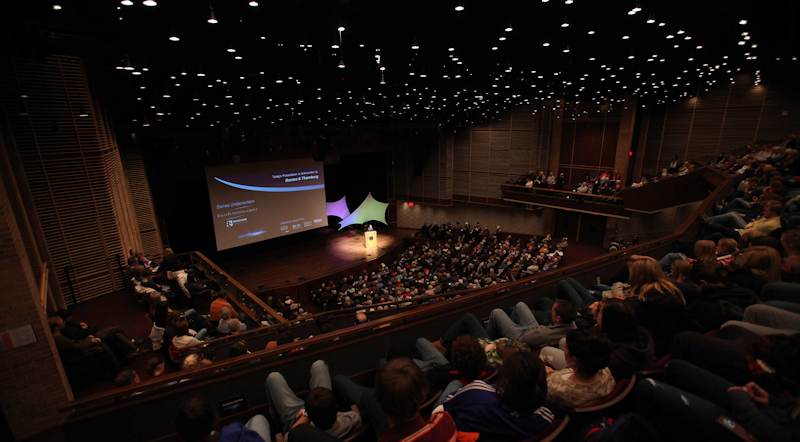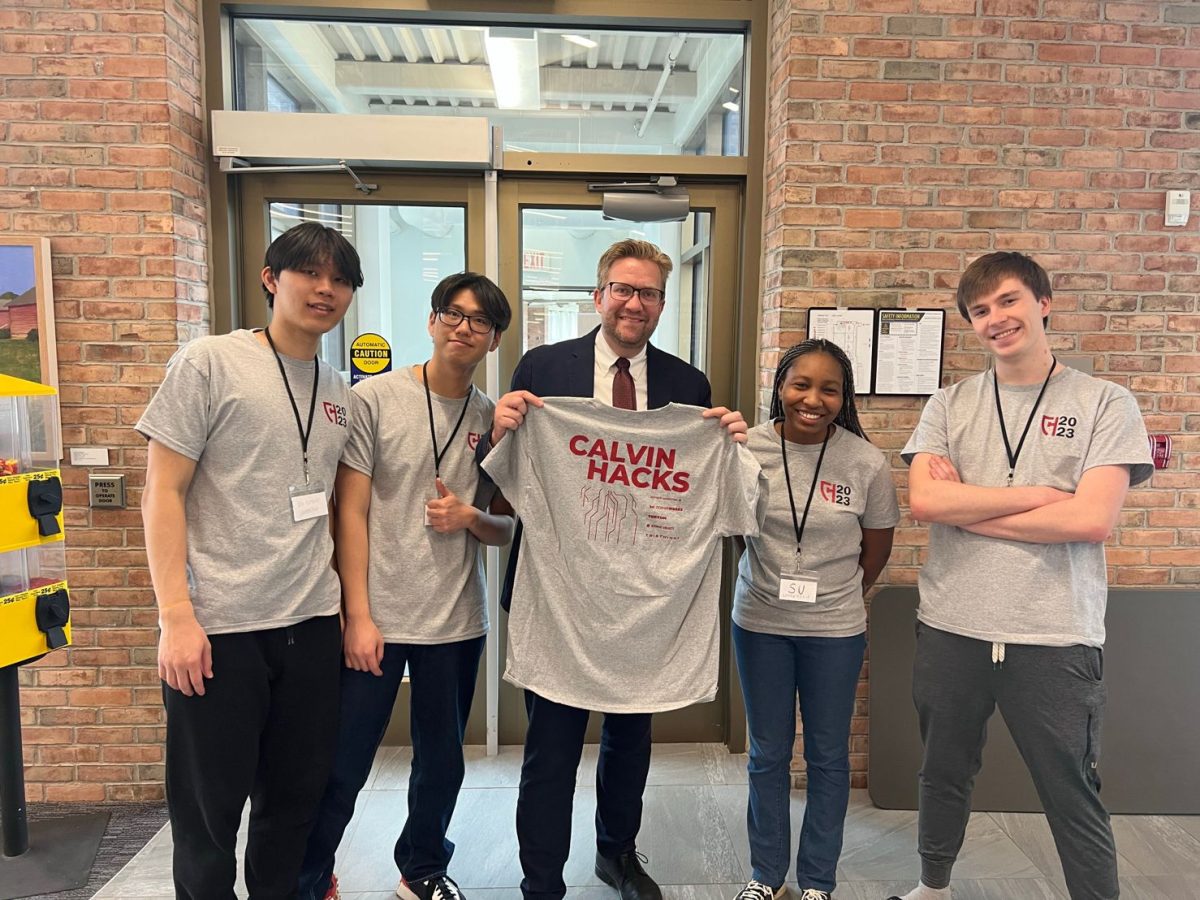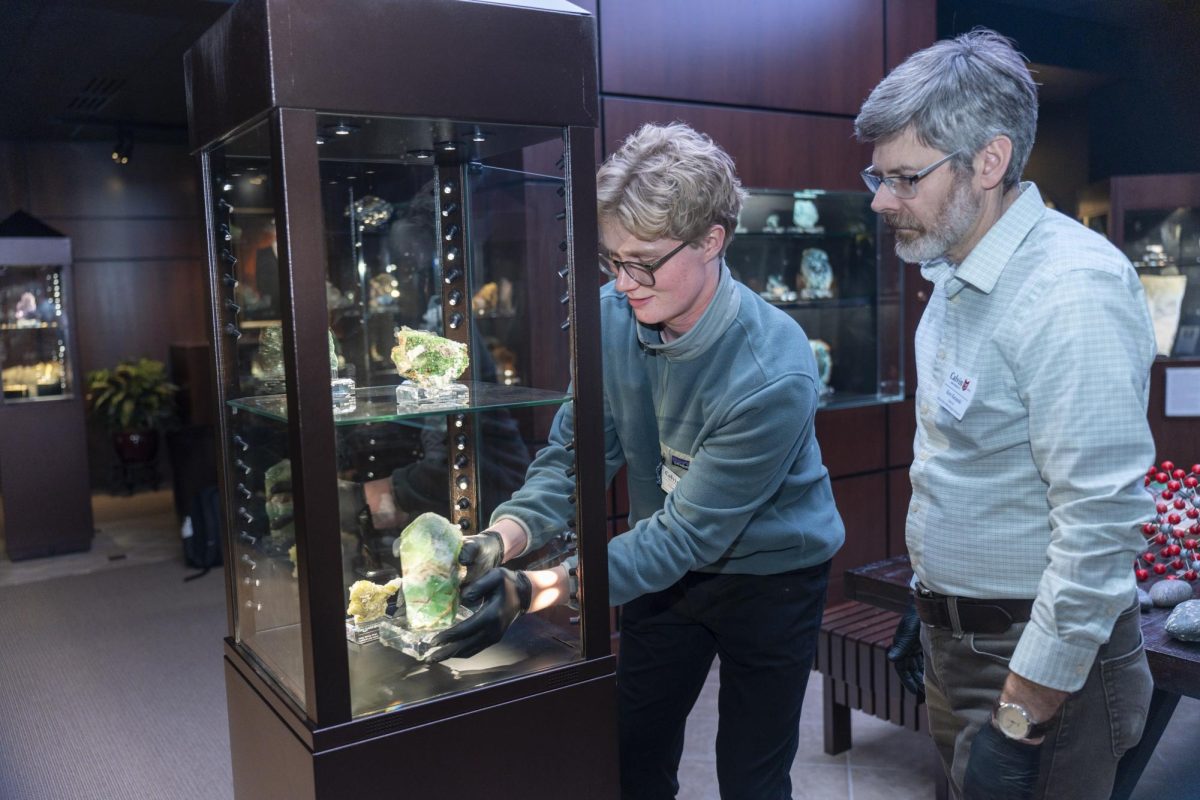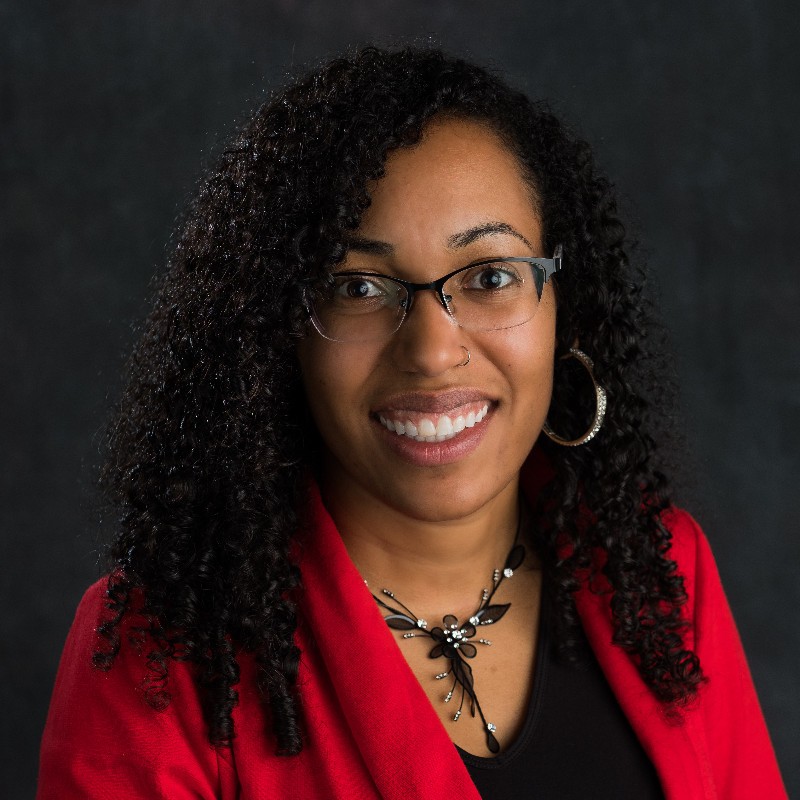Peter Diamandis is the founder of the X Prize foundation and the chair of Singularity University. His January Series talk on Jan. 10 explained how technology will be able to solve many of the world’s problems. John Muyskens talked with him earlier that day.
John Muyskens: What will we do all day when we’ve solved all of the problems?
Peter Diamandis: I do see the future in which AI or robotics, a number of these technologies, are handling many of the basic functions that we have in society: healthcare, teaching, stocking shelves, clerks, whatever it might be. And so the question is when people don’t do that anymore what jobs do they have?
My view is that we’re going to be creating new jobs. There’s two things: number one is that we’re going to be creating new jobs empowered by technology. We’re really partnered with AI, we’re partnered with robotics, we’re able to do things no human could do before. We’ve been in a coevolution with technology for centuries, effectively. And the other thing is that we’re going to begin to change the relationship we have with work.
We are going to be less defined by our work and more, I think, explorers, inquisitive, finding really what things make us happy versus what things we have to do to survive.
As we create these new jobs and eliminate lower skilled ones, how do we keep equity in society?
We are entering a day where people’s basic needs will be met. When I describe the world of abundance, it’s not a world of luxury — it’s a world where people’s basic needs: water, food, shelter, education, healthcare, communication, governance, and that liberates people to do more creative human talent. I think that ultimately I really don’t know what this society is going to look like but there are going to be some fundamental changes that are coming down the pike and for me that’s what gets exciting.
How should we change our attitudes about education?
I think the most important thing we need to teach people is curiosity. How to learn how to learn. We’ve lived in a society where, for the past hundreds of years, we’ve taught people how to be part of an industrial complex. Assembly line workers. We’ve tested them where being creative on your test doesn’t count. There is a right there is a way to do it. You color inside the lines, and I think that’s unfortunate because that’s the last thing we want when the answer is easily knowable because the AI whispering in your auditory cortex gives you the answers you knew instantly. It’s the questions that are far more important than the answers, so I think that’s part of where we need to go.
Is there a way to teach people to be creative?
I think that people are naturally creative. I think there’s a way to teach people to stay creative. I think that as kids we are natural learners. We are investigating the world. We are experimenting with the world, and then in school we really force them to abide by certain things, so I do think creativity is born in us and keeping it there is important.
What advice would you give to students?
There’s one major piece of advice which is critical. Which is for them to find what they’re most passionate about, that everything meaningful in the world, anything bold and meaningful in the world isn’t easy. It’s hard work, and if you’re passionate you’ll keep doing it until you get there. If it’s something you’re doing for your parents versus for yourself then you’re going to give up way before you achieve it.
My passion has been, since my childhood, space. I was born right when Apollo was happening, when Star Trek was coming out, and I saw a bigger future. I ended up wanting to become an astronaut; my parents wanted me to become a doctor, and I became a doctor to make them happy, but I also maintained my space passions. I’ve started a dozen companies in the space arena. X Prize and Zero G were both overnight successes after ten years of hard work. I was told ‘No’ dozens if not hundreds of times, and it was only by perseverance that I was able to actually make that happen.
What advice would you give about conducting interviews?
I’ve done thousands of interviews on the recipient side and probably hundreds on the giving side, and it’s trying to get someone to go into the story. You want to paint a picture as much as you can and you want an opening story that’s going to be able to capture people’s attention, and then follow on with that, so I’ll give you the opening story.
I grew up in a family where my father was a physician, my mom worked in the office. It was expected that I would be a doctor. I remember my mom telling me when I announced to her at the age of 9 that I was going to become an astronaut she said ‘that’s nice, son, but I know you’re going to become a doctor.’ When I finally got to Harvard Medical School I was studying medicine, but my heart was in space.
My fourth year of medical school I was running two companies. I remember working at night in the hospital from the 10 p.m. to 6 a.m. shift so I could go sleep until noon and then work at the office from noon until 10. I’d sneak out of surgery to check on how the rocket firings were doing. I bought one of those first Motorola brick phones so I could check in from the hospital.
There was a meeting I had with my dean of student affairs who came to me and said, “you know Peter, your interns and residents are reporting that you’re on the phone all the time and you’re not really paying much attention. Do you want to graduate?” And I ‘fessed up what I was doing and I said, “yes, I do want to graduate. I really wanted to make my parents proud and would love to have the degree, but that’s not what I want to do” and he made me a deal. He said, “OK, I’ll let you graduate if you promise not to practice medicine.” And we kept our ends of the bargain. So that’s a little bit of the inside track on me.








